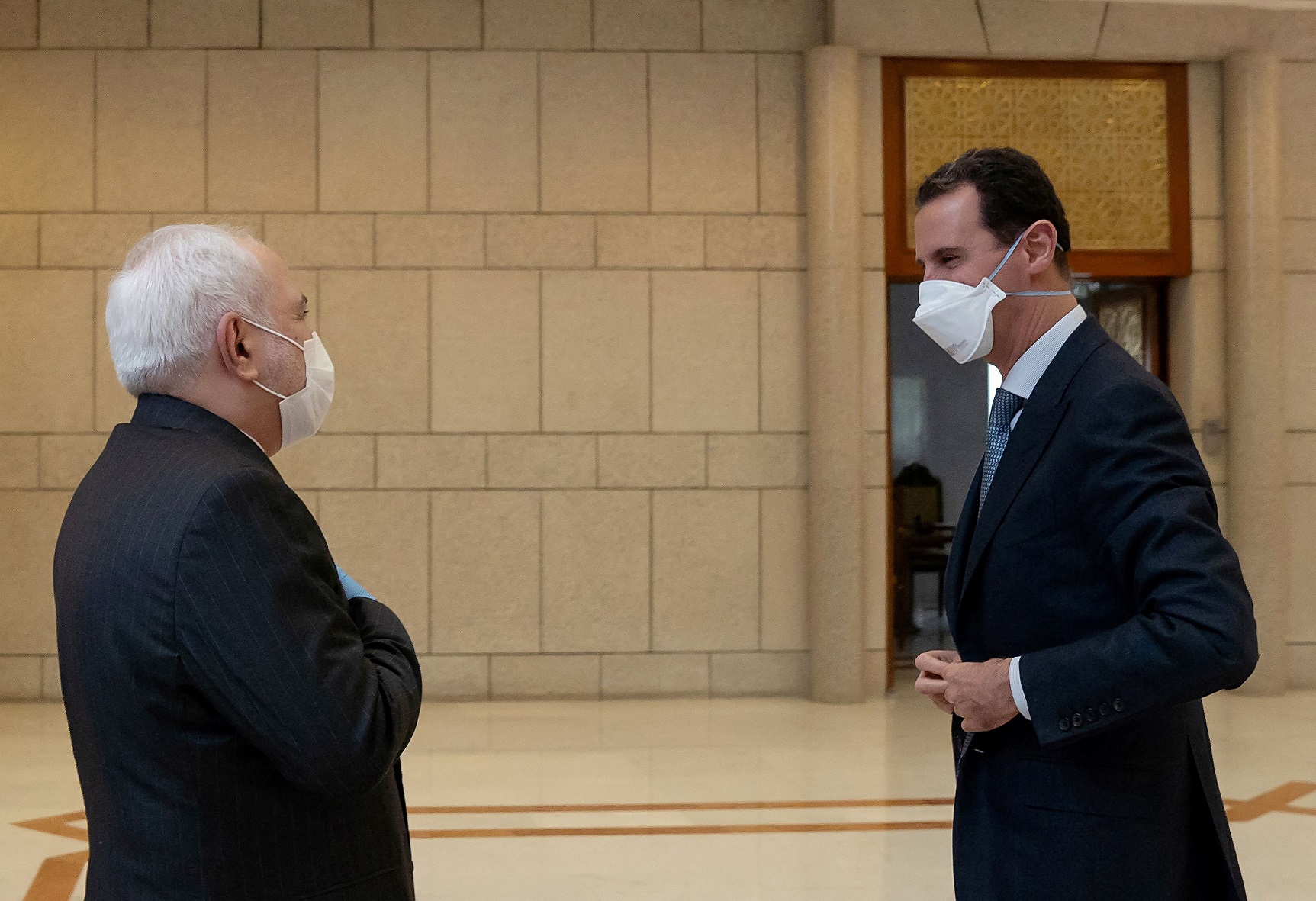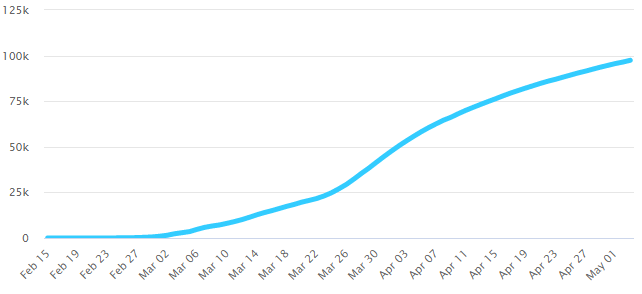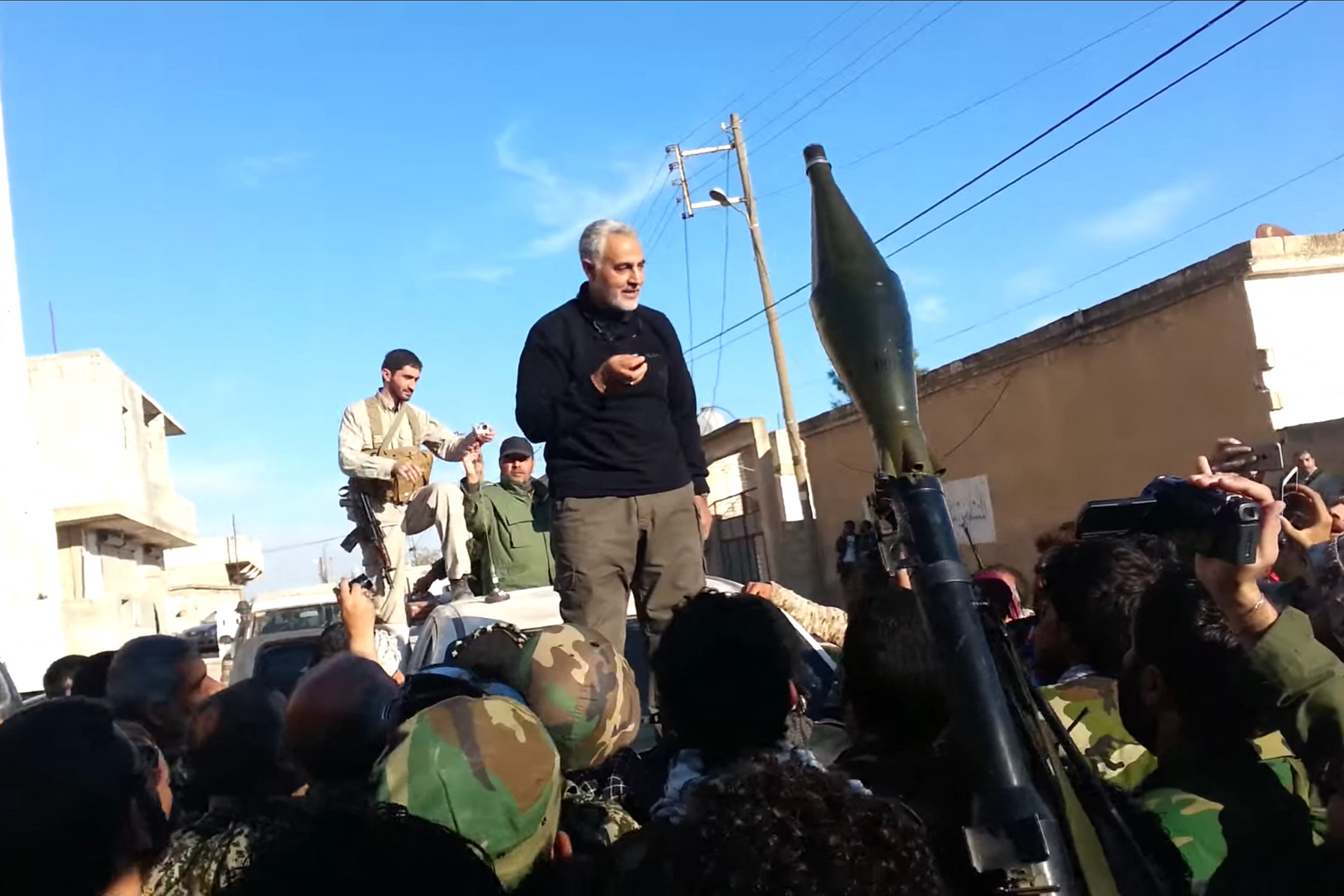Publications
INSS Insight No. 1314, May 7, 2020

Iran is not expected to cede its consolidation in Syria, despite its economic difficulties and the danger of extensive popular protest related to the coronavirus pandemic. But it is possible that Iran will be forced to reduce its entrenchment activity in Syria, at least temporarily, mainly for economic reasons. Against this backdrop, the question arises: could Iran try to take advantage of Israel’s preoccupation with the coronavirus crisis to ignite a large scale conflict, especially through a strong response to Israeli air strikes against Iranian and Shiite targets in Syria and Iraq? The Iranian regime might hope that such a response could divert the Iranian public’s attention from the distress of the coronavirus crisis; make it clear to Israel that Iran will no longer stay silent in the face of the Israeli attacks; strengthen its standing in Syria and Iraq; and present as part of the retaliation for the killing of Qasem Soleimani. But the likelihood of this scenario is limited: Iran has never responded strongly to the Israeli air strikes, and on a few occasions has settled for a modest, indecisive response. The reason for this is twofold: the Iranian air force cannot match the Israeli air force; and broad use against Israel of the large missile arsenals in Iran and those in the hands of Hezbollah could lead to a harsh Israeli response, perhaps even with American backing.
Iran is the country with the fifth-highest number of fatalities caused by the coronavirus, and the highest in the Middle East. As of May 6, 2020 it had announced some 100,000 infected people and 6,300 deaths from the pandemic, but the real numbers are likely much higher. The large number of casualties prompted a wave of protests among the Iranian public and criticism of the regime: the fact that the government was late in responding to the outbreak of the disease, initially denied that the virus had reached Iran, expressed doubts about quarantines, and was not quick to stop the flights from China – although pilgrims from China to Shiite holy sites were apparently the source of the coronavirus in Iran. So far, this criticism has not led to street protests, perhaps due to fears of infection in mass demonstrations.
The coronavirus crisis could also affect Iran's consolidation in Syria, where the Iranians have invested great efforts since the outbreak of the civil war. Their aim was to strengthen the Assad regime and build a central stronghold of influence in the Syrian theater that will fortify the Shiite axis from Iran to Lebanon and provide Iran with access to the Mediterranean Sea. From the perspective of the Iranian regime, the Syrian expanse serves as a forward defensive line for Iran, and thus it is important to Iran to maintain military forces there – currently most of them are Shiite militias under Iranian command – to secure Iran's interests and its connections with the Syrian regime. No less important, the stronghold is meant to help create an additional front against Israel from the direction of the Golan Heights and to strengthen the Lebanese Hezbollah organization, mainly by improving the large missile arsenal that Iran built for it.

Before the outbreak of the coronavirus crisis, Iran's efforts in the Syrian theater had already encountered significant difficulties. The Trump administration has not settled for economic pressure only on iran, and since early 2020 it has also exerted military pressure, by attacking Shiite militias that are connected to Iran, mainly the Iraqi militias. Russia, Iran's partner in strengthening the Assad regime, has become the most influential actor in Syria. It is competing with Iran over economic connections with the Assad regime, and disapproves of some of Iran's actions in Syria. Turkey's military activity in northern Syria also makes it difficult for the Iranian forces there to further their objectives. The father of the Iranian military entrenchment in Syria and the commander of the Quds Force, Qasem Soleimani, was killed by the United States, and it is not yet clear to what extent his death will undermine Iran's penetration of Syria, although it is likely that the killing strengthened American deterrence against Iran. These are joined by Iran's failure to find an effective response to the numerous air attacks by Israel against Iranian Revolutionary Guard targets and Shiite militias in Syria and Iraq. The Israeli air strikes, which aim to undermine the Iranian entrenchment in Syria, and Iran's search for a response to block them, have raised the possibility, including from the perspective of the IDF, that the tension will lead to escalation into a large scale conflict between the two states, even though neither wants it.
The coronavirus crisis in Iran joins the dual crisis that has beset Iran for the past few years. For some time now Iran has been in economic distress, which intensified due to the sanctions imposed by the Trump administration. The economic slump is the main reason for the waves of demonstrations that have taken place in Iran's cities in recent years – in part in protest against Iran’s heavy investment in Syria. They are also political in nature, protesting against the leadership of the regime, and above all Supreme Leader Khamenei, and against Iran's intervention in neighboring states at the expense of the poor in Iran. However, so far the demonstrations have not posed a significant threat to the regime, in part because it has succeeded in suppressing them with violent force and opening fire on the demonstrators.
Until the outbreak of the coronavirus pandemic, it was clear that Iran did not intend to remove its forces from Syria even in the long term, despite the losses that it has suffered there. The combination of interests that guides the consolidation of its forces in Syria – the special relationship with the Assad regime; cultivation of its influence in Syria, which will connect the Shiite populations in Iran, Iraq, and Lebanon; creation of a land corridor that will connect Iran with the Mediterranean Sea; a strengthened Hezbollah and intensified threat toward Israel; and the Assad regime's interest in the continued close relationship with Iran – all of these have made the continued presence in Syria very worthwhile and important to Iran, despite the toll it has taken.

The intensity of the coronavirus crisis that struck Iran seems to have changed the situation, although the Iranian leadership has not yet spoken to this. Given the number of fatalities from the pandemic, for a long time most of the regime's attention will presumably be directed at domestic reconstruction. The crisis will further undermine Iran's economic situation, and it will have difficulty to continue investing the same scope of resources in reconstructing Syria. It is possible that the intensity of the outbreak in Iran will also be reflected in the Iranian forces and Shiite militias in Syria, including Hezbollah, and will make Iranian military activity in the arena more difficult. Turkey's military activity in northern Syria also seems to be complicating Iran’s situation.
Nevertheless, and despite these difficulties, Iran is likely still determined to continue to entrench itself in Syria, exploiting Damascus’s dependence on Iranian assistance. The Assad regime's internal weakness entails risks and difficulties for Iran, and forces Tehran to invest significant efforts in strengthening it. However, it also provides iran with the chance to expand its influence in the sphere that includes Iraq, Syria, and Lebanon, and for now the Assad regime has publicly welcomed the continued presence of Iranian-led forces in Syria. The fact that the large majority of the forces operated by Iran in Syria are not Iranian, but Hezbollah fighters and Iraqi, Afghani, and Pakistani Shiites, also makes it easier for the Iranian regime to cope with the domestic criticism. Iran sees special importance in improving Hezbollah's capabilities, especially via the missile arsenal's precision project, which will enable Hezbollah's missiles to launch precision attacks on military and strategic targets.
The continued Israeli air strikes in Syria against Iranian/Shiite targets show that Iran is continuing its military entrenchment efforts in Syria. Iran's determination can also be seen in the increased activity of the Revolutionary Guard and the Shiite militias in the fighting in the Idlib region since early 2020, and the ongoing attacks by Iraqi Shiite militias associated with Iran against American bases in Iraq.
However, it is possible that due to the coronavirus crisis, Iran will reduce its entrenchment activity in Syria for several reasons. The pandemic will likely aggravate Iran’s economic situation, and will not enable it to invest resources in rebuilding Syria at the previous level, and perhaps will also force it to reduce its involvement in Iraq, Lebanon, and Yemen, as well as curtail plans to strengthen Hezbollah. Second, the tens of thousands of sick and killed by the coronavirus in Iran, and the claims voiced in the Iranian public already at an early stage regarding the mishandling of the crisis and withholding the truth from the public, could create a basis for renewed agitation against the regime. If this happens, the regime could reduce its military and/or civilian activity in Syria, in order to direct resources toward the domestic arena.
Could Iran try to exploit Israel's preoccupation with the coronavirus crisis to ignite a conflict with Israel – mainly through a severe response to Israeli air strikes against Iranian and Shiite targets in Syria or in Iraq? This possibility of deterioration into a large scale conflict between Iran and Israel has already been considered in Israel, because there is no doubt that Iran has a major interest in stopping or at least substantially reducing the Israeli strikes, which have caused it and its proxies significant losses. In addition, in theory, from the regime's perspective, such a response could divert the Iranian public's attention from the coronavirus crisis, make it clear to Israel that Iran will no longer stay silent in the face of the air strikes, strengthen Iran's standing in Syria and Iraq, and present as part of the retaliation for the assassination of Qasem Soleimani.
But despite these considerations, under the current circumstances the likelihood of such a response appears slim, for several reasons. First, Iran has never responded forcefully to Israeli air strikes, and on a few occasions has settled for a modest, indecisive response. The Iranian air force cannot match the Israeli air force, and thus Iran has not used it at all in the Syrian arena. The Iranian and Syrian air defenses have not achieved significant results against the attacks so far. The main measure that Iran can use against Israel is the enormous arsenals of missiles in Iran and in the hands of Hezbollah (and to a lesser extent in Iraq). So far Iran has not tapped these arsenals for use against Israel to a significant extent, out of fear of a harsh Israeli response, including against nuclear sites in Iran. The coronavirus has not changed these considerations. On the contrary, Iran is likely concerned that deterioration in the conflict with Israel in Syria would be received by the Iranian public with reservations, at least temporarily, which is already criticizing the regime due to its failures in handling the crisis.
Second, Iran is preoccupied with the severe coronavirus crisis within its territory, which has developed on a scale that is several times more severe than the crisis in Israel. The Iranian leadership is also investing efforts in preventing an additional deterioration in the economic situation, which could lead to popular agitation and demonstrations, which in an extreme scenario could endanger the stability of the regime. This is not the right time to provoke Israel. And third, following the United States' departure from the nuclear deal and Soleimani's killing, Iran needs to take into account that the Trump administration – unlike the Obama administration – is willing to go further in military, political, and economic measures against Iran. The Iranian regime is certainly aware of the close relations between the Trump administration and Israel, and thus Iran will have to be careful in its actions against Israel and refrain from actions that would also lead to an American response.
At the end of the day, Iran will not, it seems, cede its relations with the Syrian regime or forfeit the stronghold in Syria that is so important to it. These are cornerstones of Iran's regional strategy. But it is possible that Iran will reduce its activity in Syria, at least temporarily, for economic reasons, due to its preoccupation with the coronavirus crisis, and out of the concern that this activity will encourage criticism and protest on the part of the Iranian public. At the same time, despite Iran's clear interest in stopping the Israeli air strikes in Syria and Iraq, Iran will, it seems, continue to be wary of carrying out a significant response against them, which could lead to a large scale conflict with Israel.


